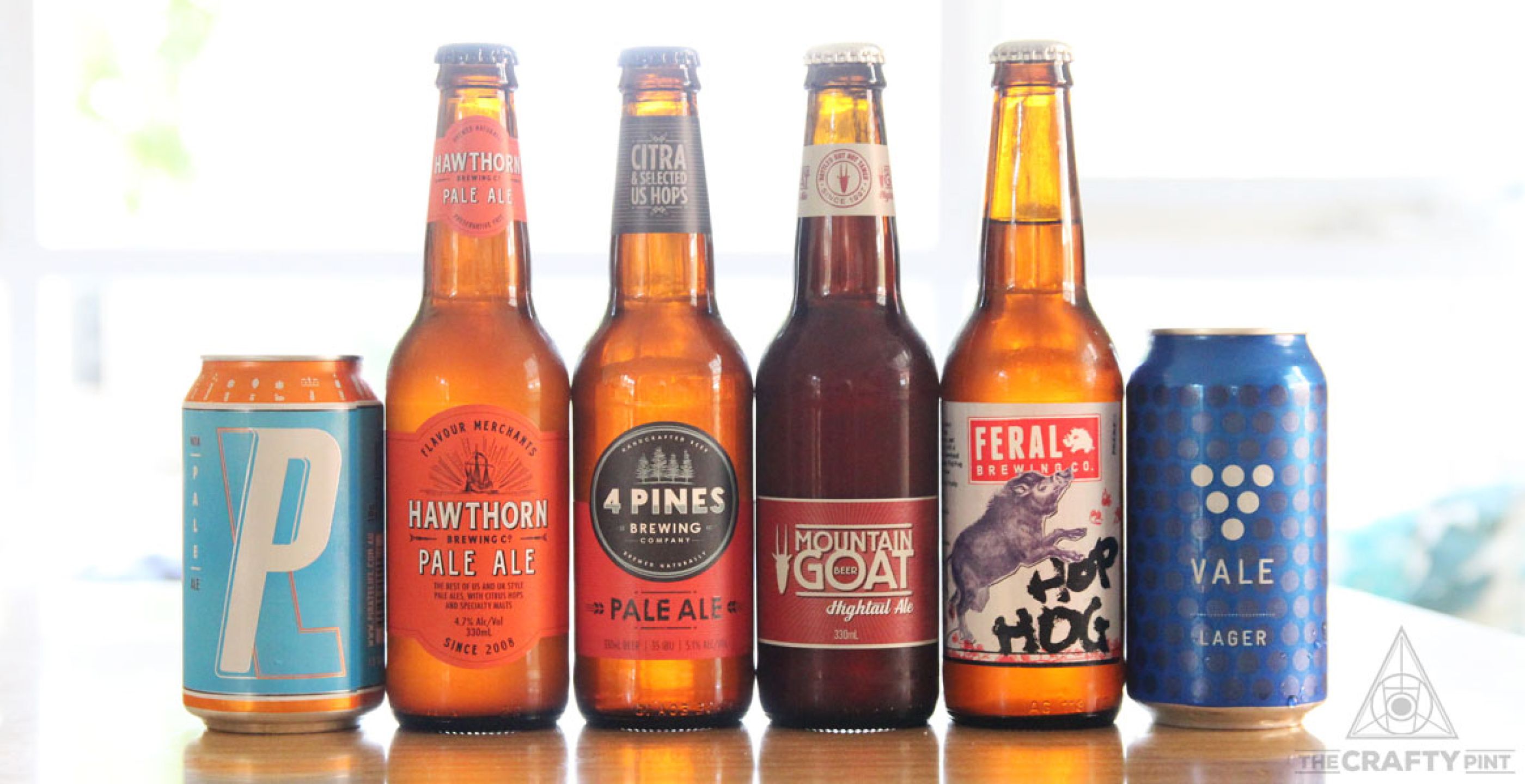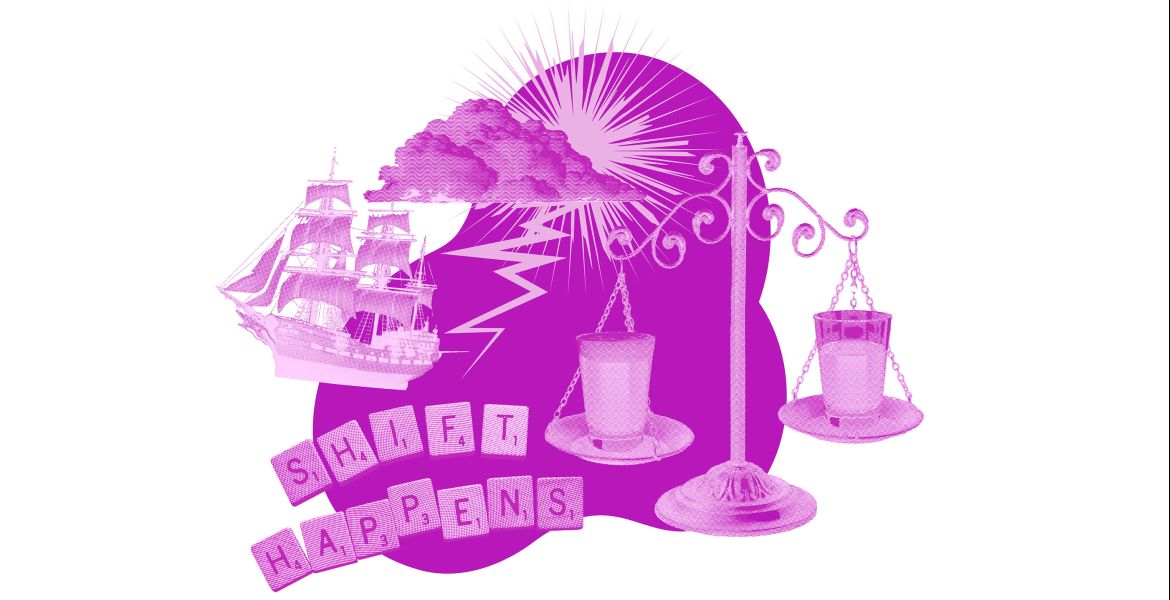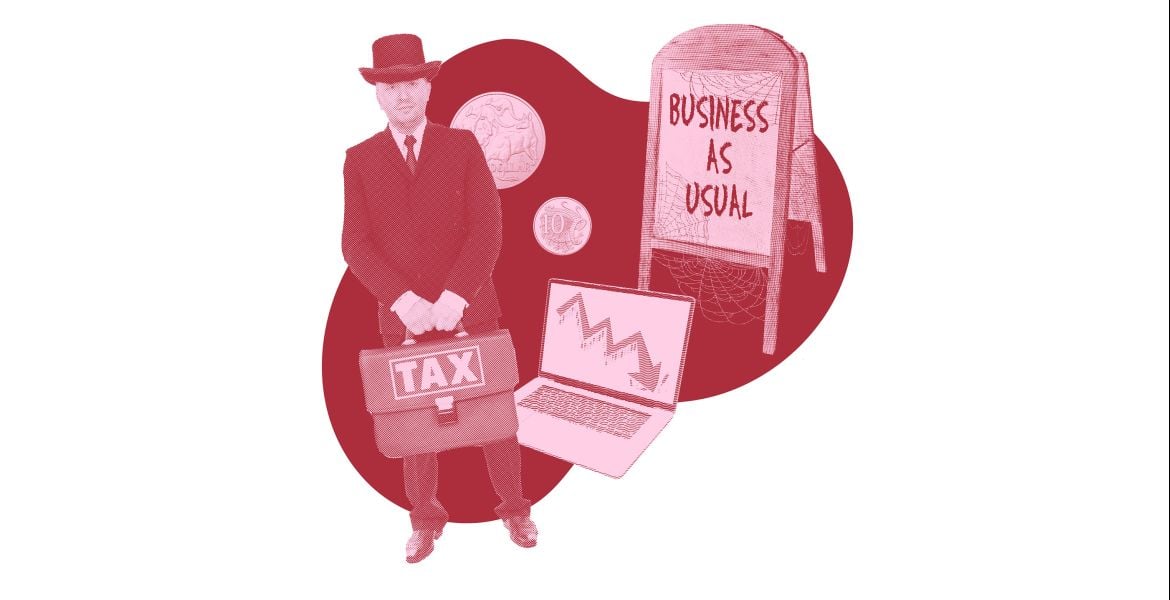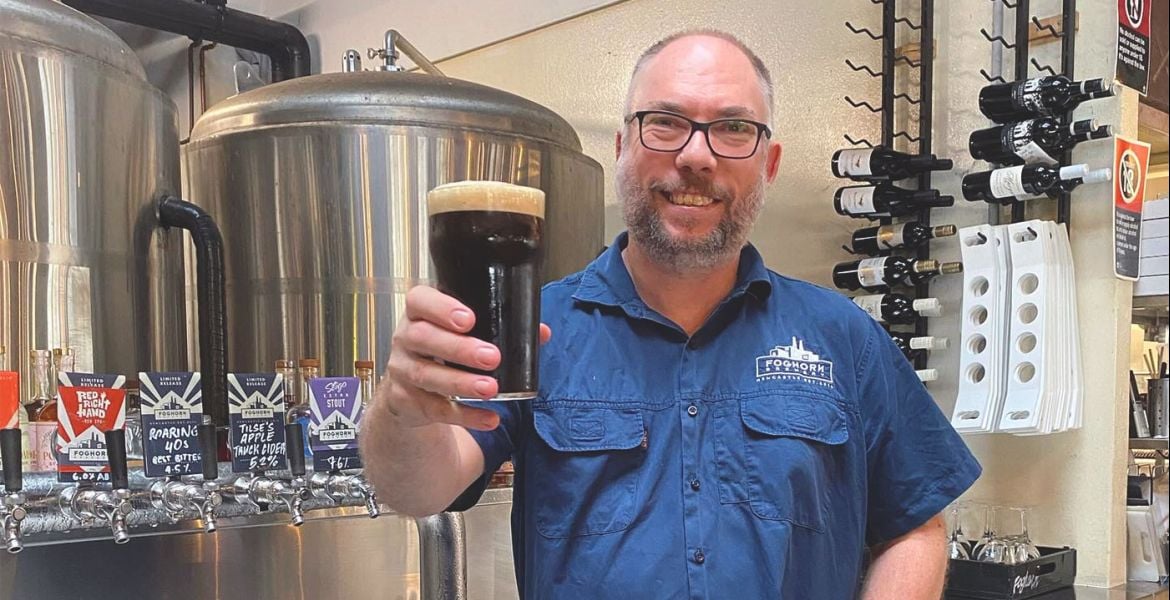In 2015 there was no bigger story in the world of Australian beer: Mountain Goat, one of the darlings of the county’s independent beer movement and a flag bearer for an industry enjoying a remarkable renaissance, was sold to Asahi. The news sent shockwaves through the beer world.
People had long speculated as rumours swirled around the Melbourne icon in the years leading up to the sale but, until that point, big brewery buyouts had been taking place almost exclusively overseas, fuelled by the increasingly avaricious nature of the world's largest brewing companies in the United States market. Suddenly, it had a local face.
The company claimed little would change, even as longstanding employees resigned within days and weeks. Social media went through its inevitable partisan meltdown – messages of congratulations on one side countered by drinkers and retailers vowing to never again drink or stock the beer – although many found solace in a combination of the two. The reaction then was raw, but it would prove to be part of an increasingly familiar script.
Within 69 eventful days in 2017, three more of the biggest and most beloved local breweries ceded their ownership to overseas corporations; 4 Pines and Pirate Life sold to AB InBev (ABI) and Feral to Coca-Cola Amatil (CCA). Vale Brewing's sale to South Australian beverage company Vok Beverages, on the same day as the Feral-CCA announcement, and Hawthorn Brewing's sale to what was then Dixon Hospitality completed a substantial shopping list for the year.
Partly in response to what had become a growing trend, the Craft Beer Industry Association took a stand, making the decision to change its membership structure so that operations with major brewing company ownership were no longer welcome. In came the Independent Brewers Association (IBA), out went the likes of Little Creatures, White Rabbit, Matilda Bay and, later on, the newly foreign owned brewing companies and Feral (whose owners argue they are, technically, still entitled to be members).
The high profiles sales robbed the IBA of many of its biggest members – and led to the unintentionally amusing series of events that saw 4 Pines finally agree to join, having refused to do so until the big players were removed, win Champion Large Craft Brewery at the 2017 Craft Beer Awards soon afterwards, then weeks later relinquish their membership after signing up to become ABI's 33rd global craft brand acquisition.
Yet the move also gave those who were left a clearer path to follow as they sought to create what they saw as a better, fairer, more educated landscape for small, independent brewing companies and their supporters to inhabit.
Having rebranded their annual beer awards as The Indies – "Craft" now cast aside – this week sees the IBA launch an independence seal. Members are encouraged to use it to indicate they are an independent, Australian-owned business; with it will be a campaign designed to help people understand – and, presumably, care – about why such things matter.
The Wider Picture
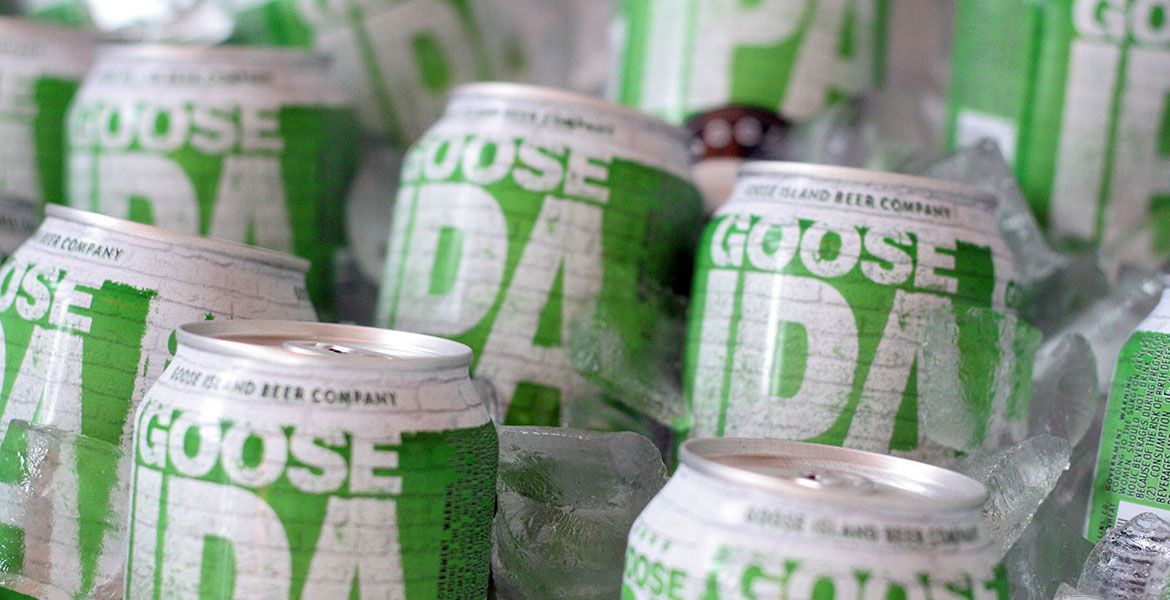
Its launch follows similar endeavours elsewhere, including the US and the UK. In the former, which is the industry that Australia's tends to follow most closely, the Brewers Association behind the American seal reports that businesses responsible for 75 percent of all independently brewed beer in the US now use the logo in some form.
Indeed, the debate around ownership and independence has travelled further and is being fought more intensely there than, as yet, in Australia. It was one of the areas we looked at in our state of play feature last year and one that was at the forefront of the recent Craft Brewers Conference in Nashville, where attendees listened as Left Hand Brewing Company co-founder Eric Wallace talked of the "many faux craft, crafty, captive, capitulated and acquired brands [that] are weapons in the arsenal of the big breweries and used to control as much of the market as possible."
He wasn't alone in delivering such messages, all set against a backdrop of a few years in which many of the bigger and much-loved players in the US scene – from Goose Island and Ballast Point to Lagunitas and Wicked Weed – have become brands within far larger operations, in which others have taken major investment from other sources, and in which some icons who remain independent are suffering from stagnating or declining sales, or, as in the case of the once high-flying Green Flash, have closed.
An evolving picture
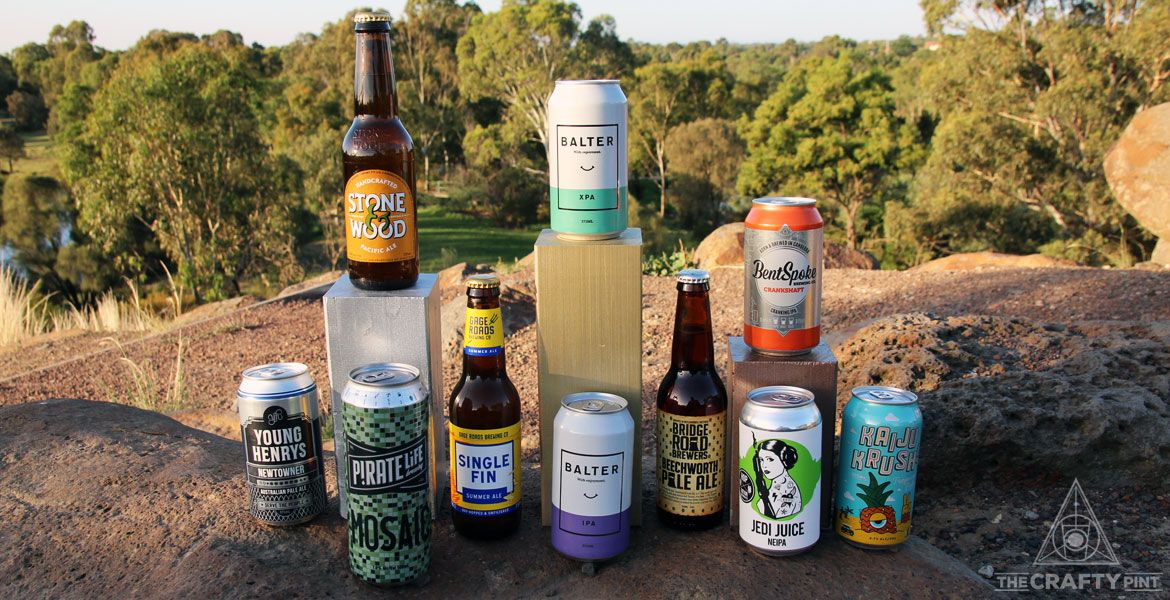
As with so many aspects of the industry – the beer styles we're brewing and drinking, the venues where you can find craft (or, at least, crafty) beer, and so on – the discussion around ownership and independence continues to move, to develop greater nuances: real, imagined or intended. The sort of questions being asked even 31 months ago when we last addressed the issue don't always get to the heart of the matter anymore.
The landscape shifts, but not necessarily in one direction. There are thousands of new converts to locally brewed beer and many more drinkers who will have taken it upon themselves to educate themselves and support good independent brewers. At the same time, there will be others who've had their faith in brewers' claims of independence undermined as one more set of owners signs on the dotted line.
Then there's the reach newly acquired brands have: into locked venues and hallowed cricket grounds; if you can get a decent pale or IPA where previously it was industrial lagers and ciders, that's got to be a good thing, right? Certainly, if the ACCC isn't going to take any action on tap contracts, it's not unreasonable to surmise it's a win of sorts, even while accepting that the dangling of an imported IPA and a hoppy local summer ale in front of a bottom line driven venue owner is another means of keeping those contracts on lockdown.
So, where do we stand? Is the ownership of your beer important? If so, why?
For the first of a short series of articles on the topic, we spoke to a variety of people from the Australian beer industry, including some of its most respected voices. All operate to a large extent within the independent sector; we'll look to address some of the points they raise with the brewing companies that have sold later in the series.
The Panelists
- Adam Betts – Founder of Northdown, Craft Beer, an importer and distributor of beers from independent brewing companies across the globe, as well as co-owner and brewer at Edge Brewing Project, an award-winning Melbourne-based gypsy operation. Through his travels with Northdown and his many collaborative brews overseas, he brings experience from outside Australia as well as that gained from being both distributor and brewer.
- Jamie Cook – A co-founder of Stone & Wood, the country's second largest independent brewery (behind Coopers), who has become increasingly outspoken on the issue of independence, not least because his business has been widely rumoured to be the next to sell on many occasions. Prior to launching the business in Byron Bay in 2008, he worked in a variety of roles within CUB, largely on the Matilda Bay brand.
- Jade Flavell – Owner of The Wheaty in Adelaide and, more recently, owner and head brewer of the in-house Wheaty Brewing Corps, which last year took out the Champion Small Brewery title at the Craft Beer Awards.
- Steve Jeffares – Co-founder of The Local Taphouse in St Kilda, GABS Festival and Stomping Ground Brewing Co in Melbourne. Steve occupies an unique position as he is on the IBA committee responsible for launching the independence seal, due to membership of the association through Stomping Ground, and also works with a number of brands that are precluded from IBA membership through their sponsorship of GABS.
- Luke Robertson – Founder of Ale Of A Time and a writer and commentator on beer (and other subjects) for a wide range of media. He is the only returning member from the panel last time around, in part to provide continuity but also to see if his views have shifted.
We posed the same set of questions to each person. Their answers (in some cases edited to avoid repetition or for relevance, but without – we hope – changing their essence) are presented below. It's a long read, but it's a big issue and one we'll be hearing plenty about in the future.
The Q&A
Does the ownership of a brewing company influence you when choosing what beer to buy?
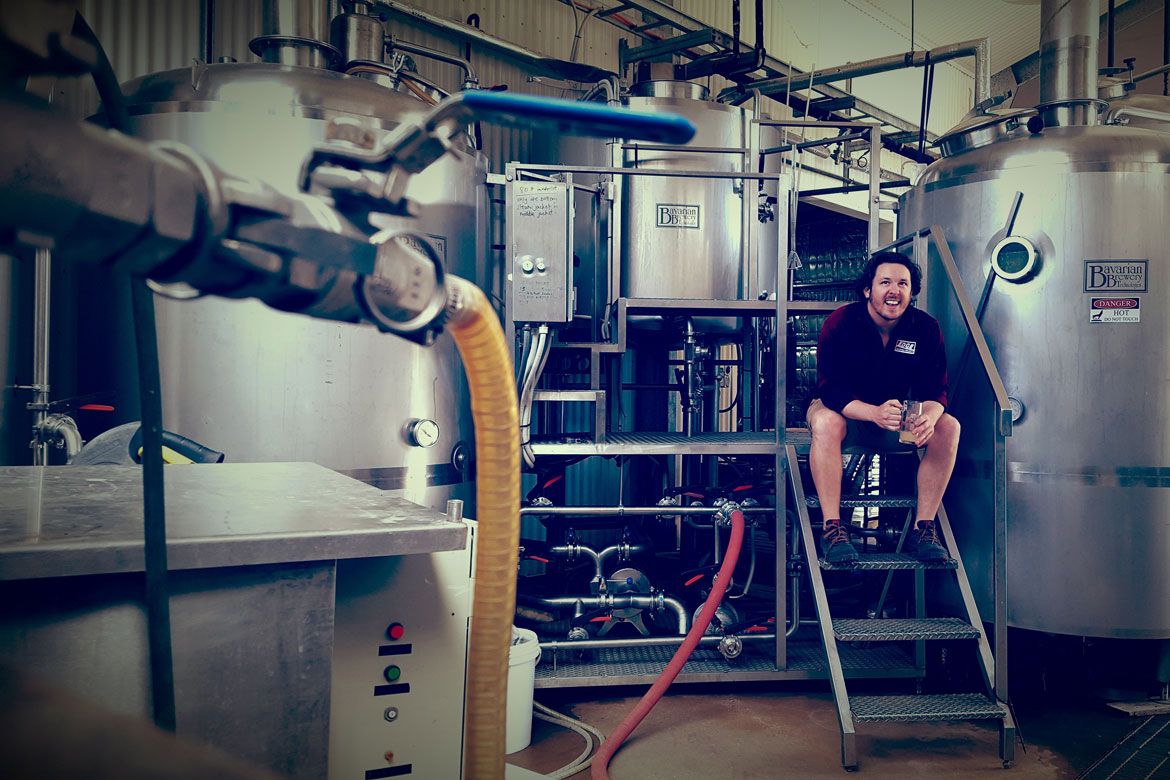
ADAM BETTS (pictured above): For me, personally, it certainly does. Good beer can be made by both independent and large brewing companies; however, I like to support other small businesses. The big guys don't need my money, plus innovation and passion tends to be strongest in small businesses.
JAMIE COOK: As a consumer, I certainly try and look behind the label of the products I buy to see what lies behind it. As a beer drinker, I am always going to support the independent brewers. As someone with a vested interest in the industry, I know just how much hard work goes into establishing and operating an independent business.
Without the passion, enthusiasm, and drive behind the early microbrewery pioneers in the mid 1980s we would probably only have two or three brewers in Australia now. It is the energy behind their desire to not accept that potential reality and to strive towards creating a counter movement which created the spark that continues to burn within today’s independent brewing fraternity.
I don’t believe that market consolidation and globalisation is good for the Australian economy, as it strips the economic benefit of smaller scale local producers and diverts profits (that are aided by tax minimisation practices) offshore. I’m happy to pay a little bit more for products that support and celebrate the glorious inefficiency of being, small, local and independent.
JADE FLAVELL: Yes. When someone has sold out, we don't throw a tantrum but we do stop stocking them. We will trade out what we have got in stock, whether heavily discounted or given away, and we don't restock it. There are exceptions, however: this years Pink Boots beer in South Australia was brewed at Pirate life and we will buy some in that regard. If something similar happens for another cause, we're fine with that too.
We don't feel that the [newly acquired breweries] need our help. They are now funded by the biggest of the big guys, and they're now only part of a big machine. One of the reasons you go into business is to do stuff you love doing with people you love working with. It's about how you relate to your customers and the broader community. For the bigger companies, it's pretty clear it's ultimately only about the bottom line. It's only about quality or people or community or looking after your customers insofar as it maximises shareholder dividends.
STEVE JEFFARES: It depends on which metaphorical hat I'm wearing at the time.
If I have my GABS hat on, we certainly try to ensure the beers showcased at the festival are representative of both the corporate-owned craft breweries and the indies and I think we have managed to do that pretty well. Corporate craft breweries play a significant and influential role in introducing people to the wider craft category via their own brands (and they also happen to sell their craft beers in significant volumes to a large fan base) but we have also strongly championed the independent craft breweries from the festival’s beginning.
While the percentage of independent beers we offer at The Local Taphouse has increased significantly over recent years, as the quality and range in Australia improves, we have always had a simple philosophy to showcase the best examples of a wide range of beer styles, whoever owns the brewery.
When I'm shelling out my own money at a bar or bottleshop, I now usually buy independent beers if they’re available and of a high quality. While I still enjoy an occasional corporate craft beer, I think the best indie craft beers in Australia are as well made and interesting as the best anywhere and I like to give those businesses some support.
LUKE ROBERTSON: I try to support small or independent breweries where possible; and, within that, I support breweries I like at a personal level. That doesn't mean people I know personally but, rather, businesses whose brands I respect and trust are doing things for the right reasons.
Have your views towards ownership / independence changed at all following the high profile sales of Mountain Goat, 4 Pines, Pirate Life and Feral and the arrival of Goose Island in Australia?

AB: Nope. My views have remained the same for years and, I presume, will for many moons to come.
JC: My resolve has certainly been strengthened by the continual drain of businesses giving up their independence. I must say that I admire the great work that the likes of Dave [Bonighton], Cam [Hines], Jaron [Mitchell], MC [Michael Cameron], Jack [Cameron], Red [Proudfoot] and Brendan [Varis] had put into building their businesses, and for the value they have created within the industry over the years. I also have the greatest respect for them making what was obviously the right choice for them as individuals and realise just how tough the decision would have been for them to sell their businesses.
However, those decisions have seen the businesses they previously owned fall into a long line of breweries over the last sixty years or so that, for one reason or another, have been swallowed by a race amongst the large corporate brewers to consolidate and control the market. It is encouraging to know that, for every brewery that is sold, there are new startups willing to step up and take their place.
JF: I guess I'm a little more cynical now than I was in relation to the marketing bullshit that is there. My underlying beliefs haven't altered. I'm less tolerant now because there's more alternatives so I don't have to support [non-independent brewing companies].
LR: I like to tell myself they haven't and I'm independent for life, but Feral War Hog, Pirate Life Pilsner and the Mountain Goat Rare Breed releases are all incredible beers.
What we try to focus on in our podcast and website is to make it clear the stuff we like and dislike… so we dislike big ownership, but still like delicious beer. The Venn diagram has a large crossover.
Has the way you view those businesses changed since the acquisitions?
AB: I think it's great they've been financially rewarded for their hard work building and growing a brand, and I believe the beer quality will remain high. Put away the daggers and let them enjoy the rewards they deserve.
Personally, I won't be drinking them, though. They do lose some consumers, as such, but I'm sure gain a hell of a lot more with their beer becoming available on big platforms, such as airlines, sports stadiums and the like.
JC: Those businesses are no longer controlled or owned by the people that started them and are now just part of larger conglomerates. The businesses cease to exist as true businesses and are now just brands within large corporate portfolios. For me, they are now no different to brands such as Asahi, Peroni, Victoria Bitter, Corona, Mount Franklin or Coca-Cola.
SJ: As a beer drinker who likes to support indie breweries, every time a craft brewery sells to a corporate brewery I certainly feel a little deflated and sad as I wish they had had other options that allowed them to maintain their independence. That said, I don't for a minute begrudge the owners from getting a return on their investment. Many people have little or no idea as to the risks and sacrifices brewery owners take when starting a brewery. We know the owners of the breweries that sold well and will continue to call them mates but, as they are no longer the owners of those breweries – and the new owners don't really need my dollars – I am certainly buying their beers less than I once did.
From a GABS perspective, the changing ownership makes little difference as the event caters for beer fans of all kinds and corporate breweries, with their broad distribution and marketing, play an outsized role in helping introduce craft beer (and possibly events like GABS) to new people.
LR: For sure. If you know the people involved in a small independent brewery then you know the decision makers. Once they are owned by someone else – be it a big company, or private equity – then the decision-making process becomes a mystery when looking in from the outside.
Sure, day-to-day brewery decisions might be the same but if AB InBev want to start brewing Pirate Life Pale at a big production brewery alongside VB then I’m guessing the ultimate decision won’t be in Pirate Life’s hands anymore (that’s purely hypothetical, I don’t know the structure and agreements of course). That also might not be a bad thing, depending on your stance.
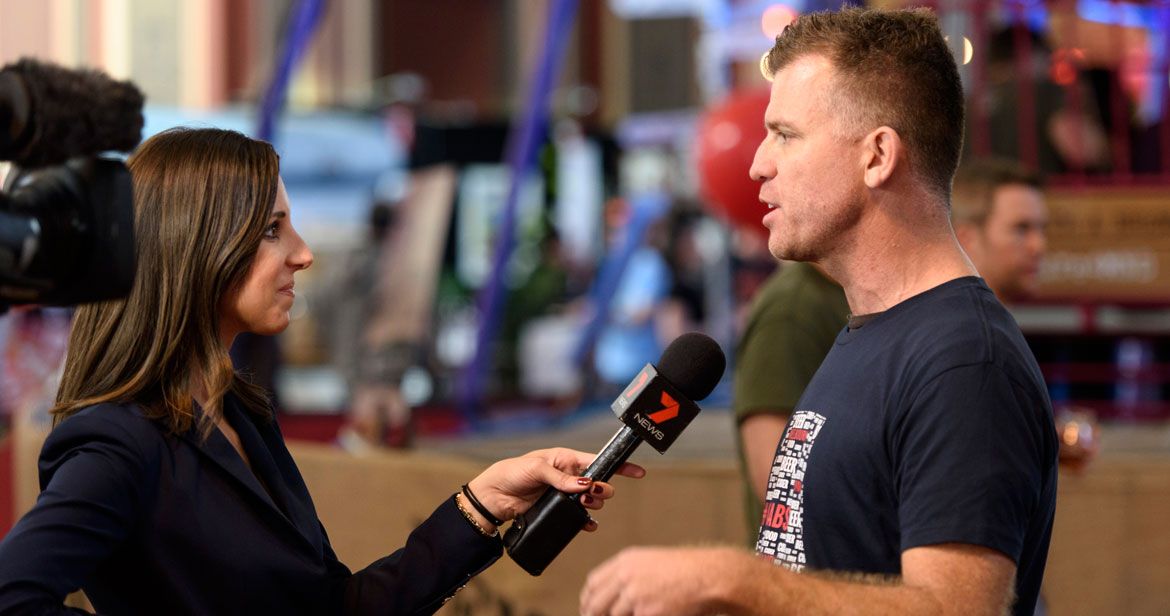
Do you think the fact that some of the recently acquired businesses had previously highlighted their independence within their marketing, or had denied rumours they were planning to sell, has undermined drinkers' faith in the craft beer sector?
AB: Everything should be honest and open. The damage only comes from hiding or misleading consumers.
JC: The challenge we have as an industry is that, for all of us to be successful and growing as independent businesses, we need the support of our communities, which includes our drinkers and trade customers. I know that nearly all small startup breweries benefit from retailers, bar owners and drinkers who do care about the little guys and want to support them ahead of the larger, dominant brewers.
It’s tough for those retailers, bar owners and drinkers to accept that, after years of their support as independents, they then fall into the hands of the larger brewers they were trying to avoid supporting in the first place. There are some retailers, bar owners and drinkers that don’t really care about ownership, and that’s OK too, but, for those that do, it’s disappointing and frustrating and it tears away at the trust that other independent brewers are trying to build.
JF: There’s a problem with weasel words. The brand of craft is harmed every time someone is sold.
Craft breweries spend a lot of time explaining why we are different, why we are better then the larger breweries: we're local, making the best beers and engaging local suppliers and doing business with them the way we want people to do business with us. Eventually, there's a lot of consumers who believe you and buy into that story. You say it's not just about the money and then turn around and sell out and it turns out it was all just about the money.
It creates a credibility gap. Punters can become more suspicious and more cynical. It feeds this cynicism, which affects the industry. It just comes down to peddling bullshit, really. And no-one likes to feel like they've been taken for a ride.
It also perpetuates the falsehood that selling out is the only model, the only option available once you reach a certain size and growth trajectory - which is of course utter garbage, just ask Stone & Wood and Sierra Nevada...
SJ: When brewery owners vigorously deny they will ever sell, and then do, of course people will become skeptical of similar proclamations from other brewery owners. But situations change. Some brewery owners may genuinely have no desire to sell but, when the offer(s) come, I imagine they ponder the immediate debt relief it would provide, or the financial reward for them, their investors and families as well as some of the opportunities to fast track the growth of the brand they started beyond what they could otherwise have done.
I am not sure if there is actually a way to successfully navigate through the issue without upsetting some people, or appearing a little hypocritical. That said, I expect there will be some breweries promoting their independence now (by displaying the new IBA Independence Seal) that will ultimately sell and that won’t be surprising to most of us. In the meantime, I expect that consternation and rumours will abound when some eligible breweries decide not to display the IBA seal!
LR: If I had one piece of advice for any brewery, it's never say you won't sell. 4 Pines made a big deal of it on social media and, in a matter of months, they were talking to AB InBev. This may sound harsh on them, but that is literally the definition of being hypocritical. And, ultimately, it sucks for the fans out there who not only support your beer, but also your independence.
I think there is a large segment of the market that may not necessarily care about the nuance of the beer, or every new release, but still take pride that they are supporting a small business and one that’s locally owned. So it sucks for them to lose that sense of pride in a brand that they trusted.
Larger brewing companies are now able to offer the illusion of choice – for example, a tied CUB pub could feature mainstream lagers alongside Goose Island, 4 Pines, Yak Ales and Pirate Life, or a Lion pub could offer James Squire, Little Creatures, White Rabbit, Panhead, Emerson's (and others).
Does this make it harder for small independents to find market share? And, if so, do you see it as a problem?
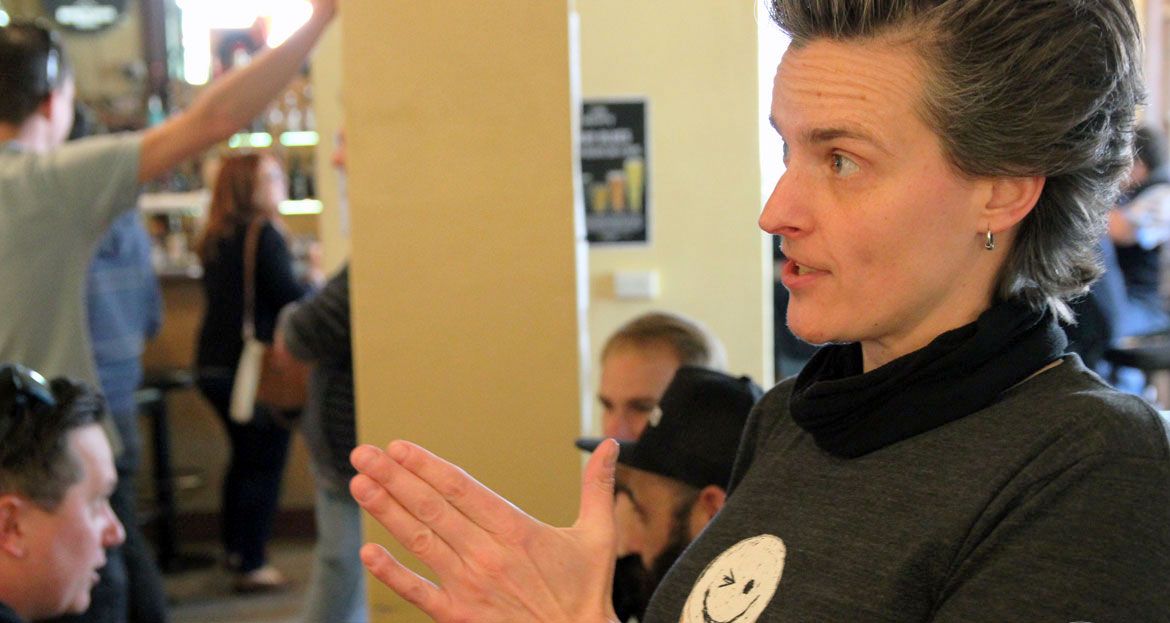
AB: It definitely does make it harder for independents in specific venues. A lot of venues in the past five years used to tie up only a portion of the taps, leaving a few taps and packaged space for craft beer as this was an important segment consumers were demanding.
Now, however, a fair few venues we have noticed are going back to full contract across all taps and even the vast majority of fridge space. The consumer gets a variety in terms of beer styles with the sub-companies producing IPAs, pale ales, stouts, etc, but as an independent company we get locked out of these venues. There are, of course, plenty of great venues that have no tap contracts and get a lot of supporters in terms of dedicated customers and independent suppliers; you can find me drinking in these bars!
JC: I think this is and has been a continual issue in the industry for many years and isn’t just confined to the “craft” end of the market. The same illusion has been in place with mainstream brands and international beer brands for decades. I am confident, though, that there is a big enough trend amongst bar owners to comfortably move away from those restrictive tap arrangements knowing that there are enough good independent brewers out there who are able to support them and help them provide real choice to their customers.
JF: Contracts are a major mechanism that the big guys have in terms of controlling access and it needs to be considered along with the whole independence thing. Interestingly there's also a growing number of smaller guys looking to tie up taps [which means] it’s a bit Animal Farm now. The pigs are running the farm (in a manner of speaking)! They're engaging in the same type of anti-competitive behaviour that they railed against, doing to smaller breweries what Big Beer did (and does) to them. But until there is a change with tap contracts and they are seen as anti-competitive – and I don't think there will be a change – nothing will come from it. A race to the bottom is a very bad thing for good beer...
Venue owners can deal with a one-stop shop. If they can deal with just one or two reps who can give you a good lineup – and it comes with incentives – it's a no-brainer unless your interests go beyond making easy money. The combination of "craft" portfolios and tap contracts is a very effective way for Big Beer to exclude smaller independents from the market.
SJ: The scenario you describe will certainly see more people exposed to more craft beers and styles from the corporate craft breweries but this "perception of choice" issue has been coming for a long while and it's definitely going to make it harder for indie craft breweries to get tap and shelf space. That said, there are real opportunities to better compete if the indies can work closely together. For example, if IBA members – and supporting venues and retailers – can embrace the new IBA Independence Seal as a way to differentiate themselves in the market and can give greater clarity to consumers, I think it could be a game changer.
LR: Yes and yes. The machine just keeps getting more money and dictating what goes in our glass. So, while it might be easy to say: "Hey, at least we CAN get an IPA on tap", let’s not forget it’s from the same companies that spent the last century buying and closing competitors and forcing nothing but lagers down our throats.
Do we suddenly think they are all about the craft when, up until a couple of years ago, they were all about the profits? Surely as consumers we aren’t so naive to think they’ll keep the dream alive when the money stops flowing.
Looking at it another way, beers from formerly independent breweries are now found on tap at venues where independents have long been locked out by contracts and, last month, AB InBev help 4 Pines secure a bar at the SCG.
So, are these acquisitions actually benefiting the wider industry by introducing more people to different styles and flavours?
AB: Classic Catch-22: more people are definitely introduced to a wider range of beer styles. However, because the big guys have these styles, they tie up the venues and consumers can't readily access independent beers.
The advantage the craft industry has is consumers are increasingly wanting new beers, rather than just the consuming the same beers they enjoyed. Independent/smaller breweries tend to be more innovative and flexible, so are able to constantly produce new styles and flavours well before a big company can, if they ever do.
Thinking of some of the beers we have done, I can't imagine a big company letting a tank be tied up for that long to produce a beer, or a company accountant approving the crazy cost of some of our ingredients, or being able to retool kit to accommodate a new method, so there will always be certain beers that don't happen on a large scale.
JC: It will certainly help expose more people to different styles and flavours, and hopefully one day some of the smaller independent brewers can grow to a size where they too can make their beers available at events, so that beer drinkers can support their businesses and brands when out and about at sporting or music events and so on. It’s been great to see the likes of Coopers and Gage Roads gain access to various sporting events over recent years.
JF: It’s a double-edged sword. If you're getting crafty beer into a place that had none and you can get people trying it for the first time at the SCG (for instance) they might go and search out good beer somewhere else. It can be a "gateway" but it doesn't work for all people. The problem then is that it's only a good thing if there is opportunity [for smaller brewers to get market access] but if more and more taps are taken over by beers from multinationals, there's only an illusion of choice.
LR: Not really. It helps them, but it's hard to say putting a Pacific Ale in a flagship venue* is a good thing for the industry when it's just designed to undercut Stone & Wood’s presence.
Are people going to the SCG looking for a beer learning experience? Is a plastic cup of IPA gonna snap someone into a new world of flavour that they hadn't encountered already?
I’m not saying it’s a bad thing, but I don’t see it as the big landmark win for craft beer that others do.
*Among the 4 Pines beers pouring at their new bar at the SCG is a mid-strength beer called Pacific Ale. 4 Pines' Australian parent company, CUB, has an agreement with Stone & Wood allowing them to use the name Pacific Ale due to their existing ownership of the Pacific Beverages brand.
Should ultimate ownership of a brand be made clear on a beer's packaging?
AB: Transparency is key. While the majority of consumers are not going to care if the beer is owned by a parent company, having that information available and not hiding it or pretending to be independent means people that do care can make an informed decision. I applaud Lion for doing this and would love the other big guys to follow.
However, changing legislation to get the big guys to clearly state ownership of all their products is an uphill battle as they have a lot more resources than us; hence, I see the reverse more attainable. I think the IBA's independence seal is a great initiative and will definitely be helpful for consumers; we will be supporting it fully.
JC: Yes, I think it’s important to be transparent with labelling and it’s something we do across our family of businesses, with each business mentioning it is part of the Fermentum family* on its packaging.
JF: I've always been a fan of transparency: the requirement to state ownership and where the beer is made on the bottle so consumers can be well informed. We can't necessarily rely on businesses to supply this information, so the independence seal is a positive way to tell people what's going on, and that the beer they're drinking is in fact independently owned – rather than just appearing to be.
SJ: In a perfect world, I would certainly prefer genuine transparency on beer labels and hopefully there are ways that breweries can be encouraged or cajoled to make happen. Generally though, I take the view that we can't control what others do nearly as much as we can control what we do, so those breweries who are transparent can use that to their advantage in their marketing messages.
*The "Fermentum family" includes the likes of Fixation Brewing Company, Granite Belt Cider and the Square Keg distribution business that works with those businesses as well as the likes of New Belgium, Pikes Beer Company and Aspall Cyder.
When discussing ownership/independence, the topic tends to focus on larger breweries owning smaller ones.
Yet there is a growing number of breweries part, majority or wholly owned by business owners from other areas of the beer industry, or that have wealthy investors and investment funds involved, often as silent partners.
Should this be part of the discussion too?
JC: From my perspective, it is all about control of the business when it comes to independence. For example, a large investment from a private equity group in a brewery would typically suggest that there will be an exit event as the private equity firm will need to cash in its investment for a significant return at some point in the future.
LR: Honestly, I have no idea. I guess we (as in the wider industry) have put so much collective effort into selling independent beer as literally anything but big brewery beer we’ve got ourselves in a bit of a pickle. I’m probably less trusting of the big private equity players moving in than I am of AB InBev and the likes – at least the latter have some understanding of the industry, while PE is designed to maximise profit before gutting and selling. But, yet, here we are, pillorying big breweries, and ignoring every other investor.
I guess we will see what the speculators and investors do when they want to start banking big cash – the public might learn some hard truths about their favourite independents.
SJ: I think the ownership discussion can certainly get confusing but to the issue around independence I agree most with is what influence do the owners have over their brewery competitors and the degree they can wield that influence. AB InBev, Lion, Asahi and CCA, for instance, with their tap contracts, distribution, marketing dollars and sway over retailers and venues, have enormous power in the market so being owned by them is probably more advantageous than being owned by investment bankers or high net worth individuals.
While I am a co-owner of Stomping Ground, and have been helping develop and launch the IBA’s Independence Seal, I have never found it difficult managing my relationships with the corporate breweries that are our GABS partners. It just has never been an issue (as far as I know) but I am always mindful of what "hat" I’m wearing at any given time.
When we last looked at this issue, we asked the panelists if they thought drinkers cared who owned the beer in their glass.
Nearly three years on, do you think drinkers, particularly those drinking craft beer, are more or less aware of, or interested in, the issue of ownership?
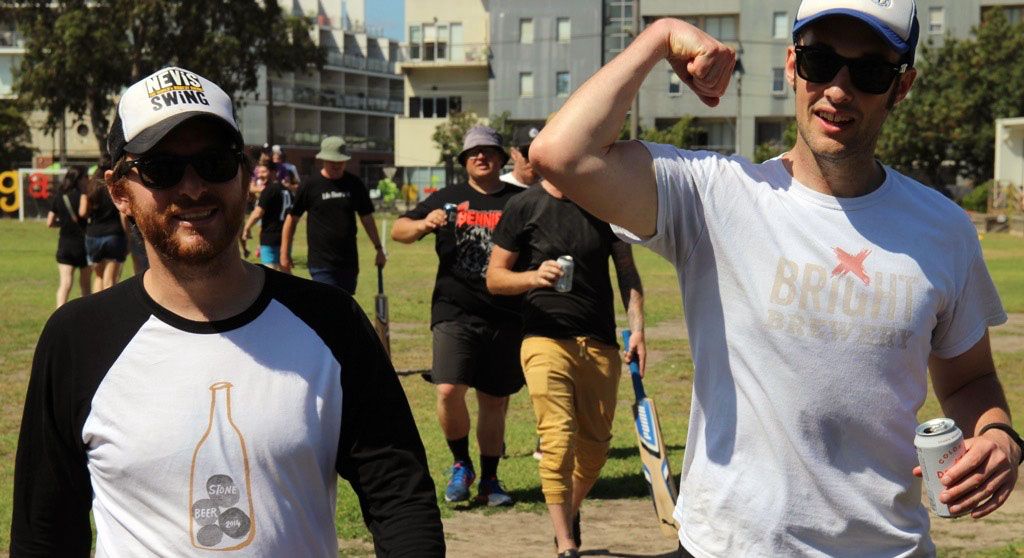
AB: I would assume the majority of people drinking beer are not fussed either way; however, consumers who are in the industry, small business owners and beer geeks do care who owns the beer they are drinking!
JC: It is very easy for people to make sweeping generalisations about what drinkers think or care about, but there are roughly 14 million beer drinkers in Australia and every one of them has their own motivations and rationale for making their choices when it comes to buying beer. Sure, there is obviously a large proportion of them that doesn’t care as much as others when it comes to flavour, ownership and so on – the fact that only around seven percent of the beer sold in Australia is flavoursome beer and only a portion of that is from independent brewers is proof of that.
But, when you look at who is buying the flavoursome beer from independent brewers, a large portion of them do care, and they are growing in number. From a Stone & Wood perspective, we get told frequently by people at our tasting room, at events or on social media that they do care, and a large number of our trade customers feel the same way. They regularly tell us they value us being fiercely independent and they trust us to remain so. How could we ever let them down given how much they have supported us over the last ten years?
It will take more to build knowledge and awareness about what independence means. I'm sure the IBA guys will have some key messages. It will need 500 breweries banging that same drum and it will take years to get through to people. It will at the end of the day when they understand what they are buying into, if they can see the value.
JF: We talk to people over the bar and they do care. But whether they care enough to change their purchasing behaviour because of that, I'm not sure.
Education is the key. Independent seals are part of that [and] a public campaign to let people know the difference between independent and non-independent breweries: trying to convince them to care and, if they do care, changing their purchasing behaviour to reflect that is the challenge.
SJ: There is no question in my mind that a growing number of beer drinkers are aware and considerate of the ownership issues and I expect that to rise further with the education and awareness campaign around the IBA’s Independence Seal.
LR: I get the sense that, as the industry broadens outside of the beer geek niche, the number of people wanting to support small business in the beer world is growing. I think those people are stoked they have a neighbourhood brewery and they can drink a local beer. Awareness is growing, but that’s maybe because the industry is growing.
We have put questions related to the key issues raised in this article to the owners of breweries that have been bought in the past few years; you can read that follow up article here. We produced a new Ownership Infographic too, which we'll be updating as the landscape changes further..
Here at The Crafty Pint, we still have paid listings for many of the brewing companies under major brewery ownership within our directory. Our view is that, as long as they continue to brew good beer and are helping craft (or crafty, if you prefer) beer reach a new audience then including them on the site fits with our underlying mission to cover and promote the local craft beer industry. As you'll note, we include the owners of these brewing companies in brackets after their names, which is our way of trying to help create informed consumers.



